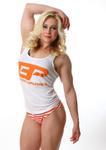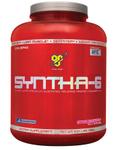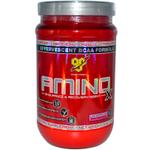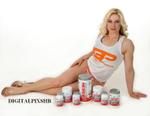| Now that the Nationals are over and the competition season is drawing to a close, many athletes are left in the same position- reviewing their year's performance and comtemplating 'what's next?'. | Lisa with Sarah enjoying a treat meal |
| It's that time of year when some of us may experience post-competition blues and after being so focused during the competitive season, the off season can seem like unchartered territiory- an seemingly endless expanse of time, a new world filled with foods that are no longer off-limit and next years goals seem miles away. It's a time during which many athletes experience what I call 'the backswing'. No explanantion needed here! | |
| Without a decent off-season plan to follow, it's little wonder that athletes may find this time in limbo difficult to traverse when all prior restrictions no longer apply. Where once competiton goals lifted us up and fuelled our every thought, there is now a let-down period where we need to re-set both mentally as well as physically- and if you'd like to vaguely resemble your competitive self, it's a time to set some new goals. While off-season goal setting is nowhere near as exciting, the moves you make now as an athlete will either guide you to new heights or prove to be your undoing. |








